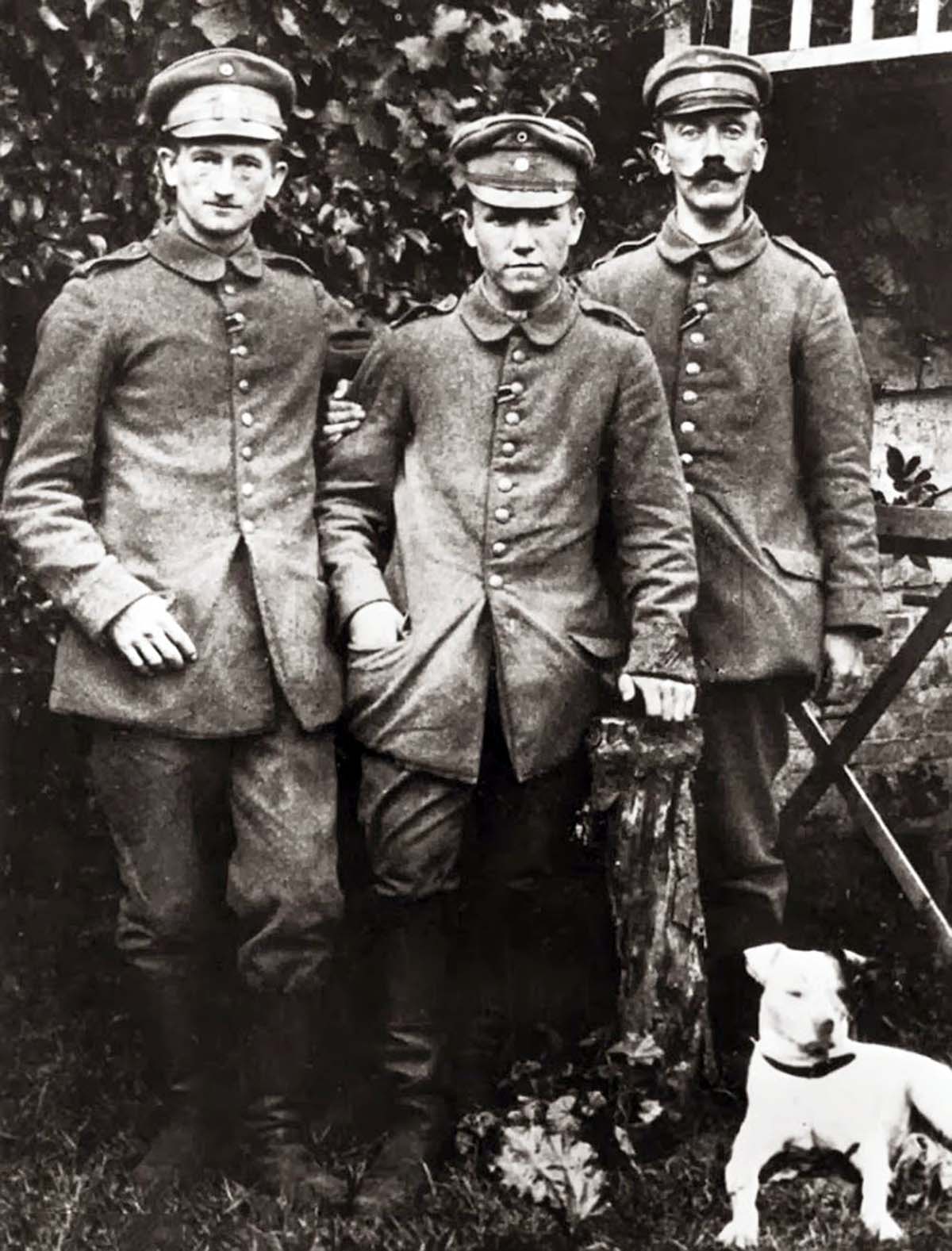While there on 10 November, Hitler learned of Germany’s defeat from a pastor, and—by his own account—on receiving this news he suffered a second bout of blindness. Hitler was outraged by the subsequent Treaty of Versailles, which forced Germany to state that they had started the war, deprived Germany of various territories, demilitarized the Rhineland which was occupied by the Allies, and imposed economically damaging sanctions. Hitler later wrote: “When I was confined to bed, the idea came to me that I would liberate Germany, that I would make it great. I knew immediately that it would be realized”. Hitler wanted to remain in the army after the war, but this was impossible with the near total demilitarization of the armed forces. He returned to Munich for demobilization. During the war, Hitler served in France and Belgium in the 16th Bavarian Reserve Regiment. He was an infantryman in the 1st Company during the First Battle of Ypres (October 1914), which is remembered in Germany as the Kindermord bei Ypern (Massacre of the Innocents) because approximately 40,000 men (between a third and a half) of nine newly enlisted infantry divisions were killed in 20 days. Hitler’s regiment entered the battle with 3,600 men and at its end mustered 611. The regimental commander was killed and thereafter they were known as the Regiment List in his honor. By December Hitler’s own company of 250 was reduced to 42. Biographer John Keegan claims that this experience drove Hitler to become aloof and withdrawn for the remaining years of the war. After the battle, Hitler was promoted from Schütze (Private) to Gefreiter (Lance Corporal) and assigned to be a regimental message runner. In early 1915, Hitler adopted a stray dog he named Foxl (little fox), who was taught many tricks and became his beloved companion. Hitler described him as a “proper circus dog”. In August 1917, the List Regiment was transferred to a quiet sector in Alsace. During the journey, both Foxl and Hitler’s portfolio of sketches and paintings were stolen. Hitler was twice decorated for bravery. He received the relatively common Iron Cross, Second Class, in 1914, and Iron Cross, First Class, in 1918, an honor rarely given to a Gefreiter. Hitler’s First Class Iron Cross was recommended by Hugo Gutmann, a Jewish List adjutant. According to Weber, this rare award was commonly awarded to those posted to regimental headquarters, such as Hitler, who had more contact with more senior officers than combat soldiers. Hitler’s Iron Cross, First Class was awarded after an attack in open warfare during which messengers were indispensable and on a day in which the depleted regiment lost 60 killed and 211 wounded. (Photo credit: Bundesarchiv). Notify me of new posts by email.
Δ Subscribe


